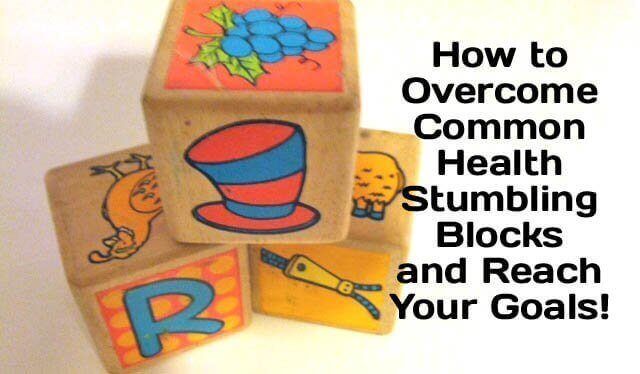We all know that sometimes it’s easy to know the health changes we need to make but tough to actually make the changes. The best of intentions can be pushed aside for some cheesy garlic bread, a late night movie, or a few too many drinks (or lack of good lighting when photographing your kid’s blocks late at night *ahem*).
Fortunately, there are some strategies you can use to help yourself stick to your health improvements. The great news is that as you do this more often, it will become easier to stick to the health changes and any actual cravings you have will go away.
Say you are new to a healthy lifestyle. You ditched the grains, sugars, processed foods, soda, etc. and two days later you feel like you’ve been drugged, have no energy and are sporting a massive headache. Don’t worry, you aren’t alone and you don’t have the flu…
Why You Might Feel Bad when Eating Healthy
These particular symptoms occur most often when a person goes from a higher carb processed food diet to a real food diet that is naturally lower carb. According to a previous post:
“It is completely normal to experience these symptoms as your body switches from burning glucose to being able to use fat and protein instead. As Mark Sisson explains:
If your body is used to employing easy glucose carbs and now must create glucose from fats and protein (a slightly more complex but entirely natural mode of operation), it can take some time to get up to speed. Rest assured that our bodies can and are doing the job. It simply takes time to work efficiently. The transition actually shifts metabolic related gene expression, increasing fat oxidation pathways and decreasing fat storage pathways. (That’s nothing to shake a stick at!) Within a few weeks, the body should be fairly efficient at converting protein and fat for the liver’s glycogen stores, which provide all the glucose we need for the brain, red blood cells, muscles, etc. under regular circumstances.
If you are interested in understanding more about why the carb flu happens, check out this article at Mark’s Daily Apple and this very detailed explanation from J. Stanton at Gnolls.org.
If you’re not interested in feeling like you have the flu any longer than needed, here are some suggestions for cutting down the amount of time you feel this way:
- Make sure you are actually eating enough, especially of fat. It won’t hurt to eat a few extra tablespoons of coconut oil to make sure you are consuming enough calories and for more energy.
- Drink enough water! The symptoms of carb flu can also be caused by minor dehydration, so make sure you are drinking enough. You naturally lose water weight during this transition period, so you will need to drink to replenish it. Sneak in some herbal teas too if you want to mix up the water, or add a tablespoon of chia seeds to 8 ounces of liquid for some instant hydration.
- As you lose water, you lose sodium and other minerals as well. Make sure you are getting enough sodium, preferably through sea salt. For me, I felt a lot better when I drank a homemade electrolyte drink or a tiny bit of Himalayan salt in water.
- Get enough sleep! In bed by 10 p.m., no excuses!
- Back off the exercise a little, at least for a day or so!
- Read these articles about staring low-carb from Dr. Michael Eades (whose blog I highly recommend!) Tips for Starting Low Carb Part I and Tips for Starting Low Carb Part II
Other Important Factors
Often, feeling bad when you start a new diet is hormone related, and if you are overweight or ill, chances are you have some hormone struggles. During the adjustment period as your body normalizes, keeping on a schedule and routine will help a lot. Meal Planning and knowing what you are cooking ahead of time will help you stick to healthier eating choices, and having a sleeping/waking schedule will really help your hormones adjust.
Here are my printable organization aids to help. I highly recommend making sure you are in bed by 10 p.m., even if you aren’t having any symptoms or trouble, as it is great for your hormones and has no downside. Focus on nourishing your body and try to learn to love and appreciate yourself and not just think of all the things you want to change about yourself.
Realize that change isn’t easy but that it is also much closer than you think and stop letting YOU give yourself excuses (I’m guilty of this one too..) Know what your goals are, clearly define them and make them into workable steps. Then commit and make it a point of honor. You’ve made a decision, a commitment to someone important (yourself) and sticking to it is keeping your word.
Think about the fact that many other people in your life will be positively affected by your effort to get healthier and the extra energy, positive mood and sleep quality you will have because of it.
What is your biggest struggle with health? How will you overcome it today? Share below!




Leave a Reply